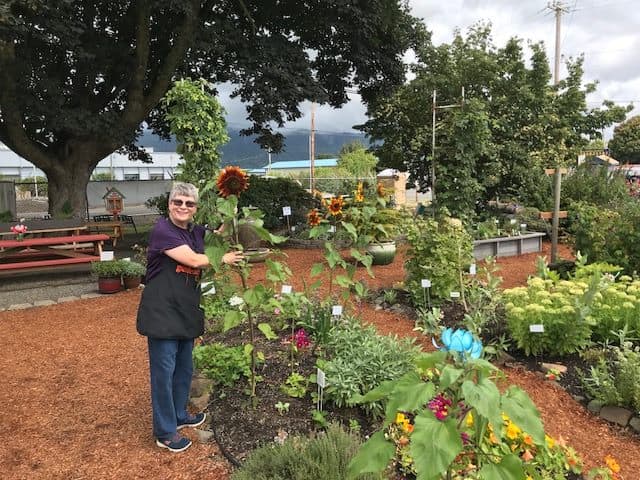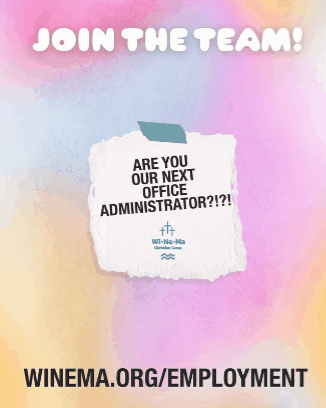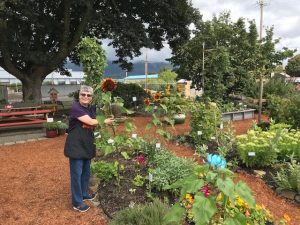
How did you originally get started in gardening? I tell people that I do not remember a time I didn’t garden. My grandmother had a garden and when she babysat, we would be outside and she would hand me big seeds that a little kid could handle, and she would show me how to put them in the ground. And I was absolutely fascinated that they would turn into beautiful flowers or peas to eat. I was hooked from the time I was about 4 or 5 years old so when I retired, the first thing I did when moving here was take the master gardening training and I’ve been involved ever since.
What do you wish you had known when you first started gardening on your own?
Don’t over do it! I think the first garden I planted on my own was probably in college and I planted every seed I could find in a relatively small space and it got away from me. I didn’t have the time to take care of it, to weed it, or to preserve it after harvest. I think the best thing first gardeners can do is decide how much time they have and how much space they have, and then choose exactly what is the most special thing that they want to grow. Start small because it can be overwhelming.
I’m a vegetable gardener primarily, and any cold-weather crops are very easy to grow. So this time of year, you can start getting lettuce, radishes and peas started. Other cold crops like cabbages, broccoli, kales are also relatively easy to grow. “Cool weather crops” start easily in the colder soil in the colder early months of the summer.
What are some common mistakes that first time gardeners make?
Growing things that look good in the seed catalog but your family isn’t going to eat – if you have picky kids who don’t like vegetables, it might not be a good idea to grow kohlrabi but corn might be okay. The best thing to do is try to grow things that you or your household will eat and start with few things that you enjoy using in the kitchen. It may not be as exciting as growing something more exotic or unusual, but when it produces well and tastes good, there’s nothing more exciting than that.
What should people know about our climate when it comes to gardening on the coast?
There are two important things to know about your garden space: the weather and the soil. You could be at the beach and have more rain and wind and sandy soil or you could be up on the side of the coastal range and the soil is really forest loam where you get a full sun exposure. Those things make a big difference on what will grow well and how much time you have to grow things until it gets cold again. I always recommend that people try growing things in raised beds where they have more control over the soil and crops.
Do you have a basic overview of what you would tell someone who is just starting out?
The first step is deciding what exactly you would like to grow: vegetables, flowers, or maybe trees? Then spend a little bit of time doing some research: the local libraries have wonderful selections of gardening how-to books. And if you aren’t sure about what kind of soil you have and want to do a soil test, OSU Extension can help make recommendations on how to do that.
Another great way to get started is to talk to your friends and neighbors! If you walk by someone’s house while they’re out gardening, stop and chat with them. Gardeners love to talk about what they’re doing and they absolutely love to talk about their gardens so don’t hesitate to ask questions and then contact us if you have any specific questions.
How can folks utilize the resources and knowledge at OSU Extension?
The best ways to contact the Master Gardeners is to call the Tillamook County OSU Extension office or email directly at tillamook.mastergardeners@oregonstate.edu. People can also visit our website at https://tillamookmastergardeners.com/ and we can message through our Facebook page, the Tillamook County Master Gardener Association.
What do you enjoy most about working for OSU Extension?
Well I love gardening, but I’m also very conscious about wanting to do it well and right. You can go online and get all kinds of odd information about how to deal with problems or insects or diseases but it’s not necessarily the best sources for information. The Master Gardener training is developed to teach people science-based gardening and home horticulture, and that is what we use for making recommendations when faced with problems in the garden (such as a disease or insect attacking your garden). We want to make sure that the information we give out is scientifically based, research-based information. And that really is a good feeling, because you know that the information that you are providing somebody is going to help them make their garden work for them.
Is there anything else you would like to add?
I don’t think there is anything better then pushing a few small seeds in the ground and watching them come up and harvesting a bowl full of fresh vegetables to serve to your family. I find that to be just an absolute marvelous process and something everyone should do at least once in their lives. As a beginning gardener, you can get a couple pots and sprinkle a couple lettuce seeds or stick in a tomato plant and see if you like the process – you’ll have salad all summer long with just a pot and a small package of seeds. Trying it out in some containers or pots is a great way to get started.
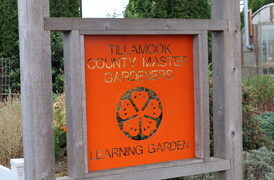
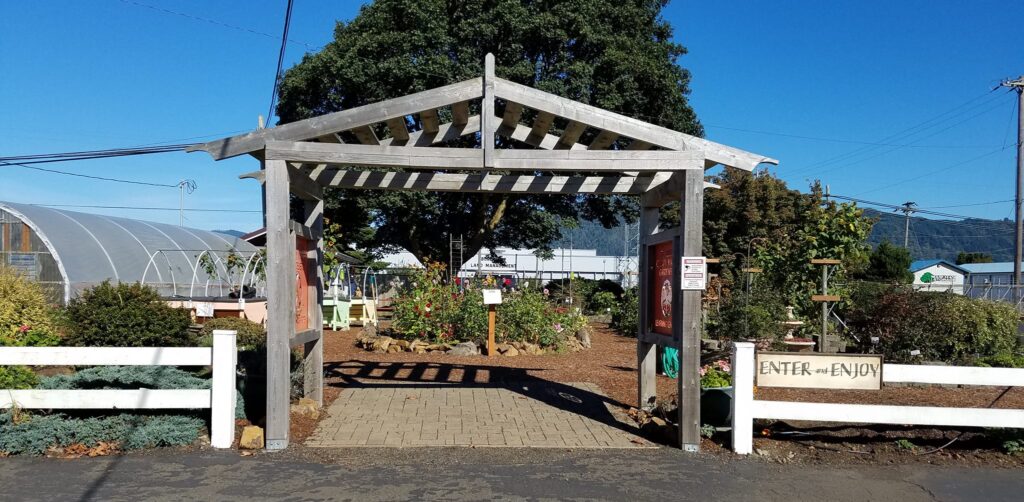 We also have a “learning garden” at the fairgrounds. If you come in the main entrance where the reader board is and look to the right, there’s a garden there known as the learning garden. Anytime the fairgrounds are open, people can wander through and see what’s going on. Last year we put together a fairly extensive container garden of mostly vegetables. This year we’ll get started at the beginning of April and anyone can stop by to see what’s growing and get in touch with us when we’re there on Thursday mornings.
We also have a “learning garden” at the fairgrounds. If you come in the main entrance where the reader board is and look to the right, there’s a garden there known as the learning garden. Anytime the fairgrounds are open, people can wander through and see what’s going on. Last year we put together a fairly extensive container garden of mostly vegetables. This year we’ll get started at the beginning of April and anyone can stop by to see what’s growing and get in touch with us when we’re there on Thursday mornings.
Other wellness questions? Email info@tillamookcountywellness.org. For more local health and wellness information, visit www.tillamookcountywellness.org or follow Tillamook County Wellness on Facebook and Instagram.

